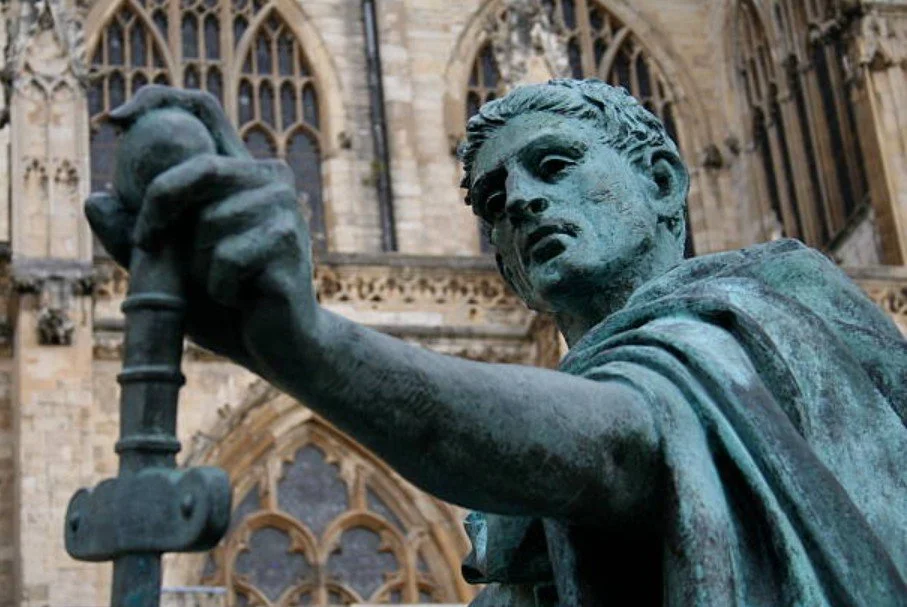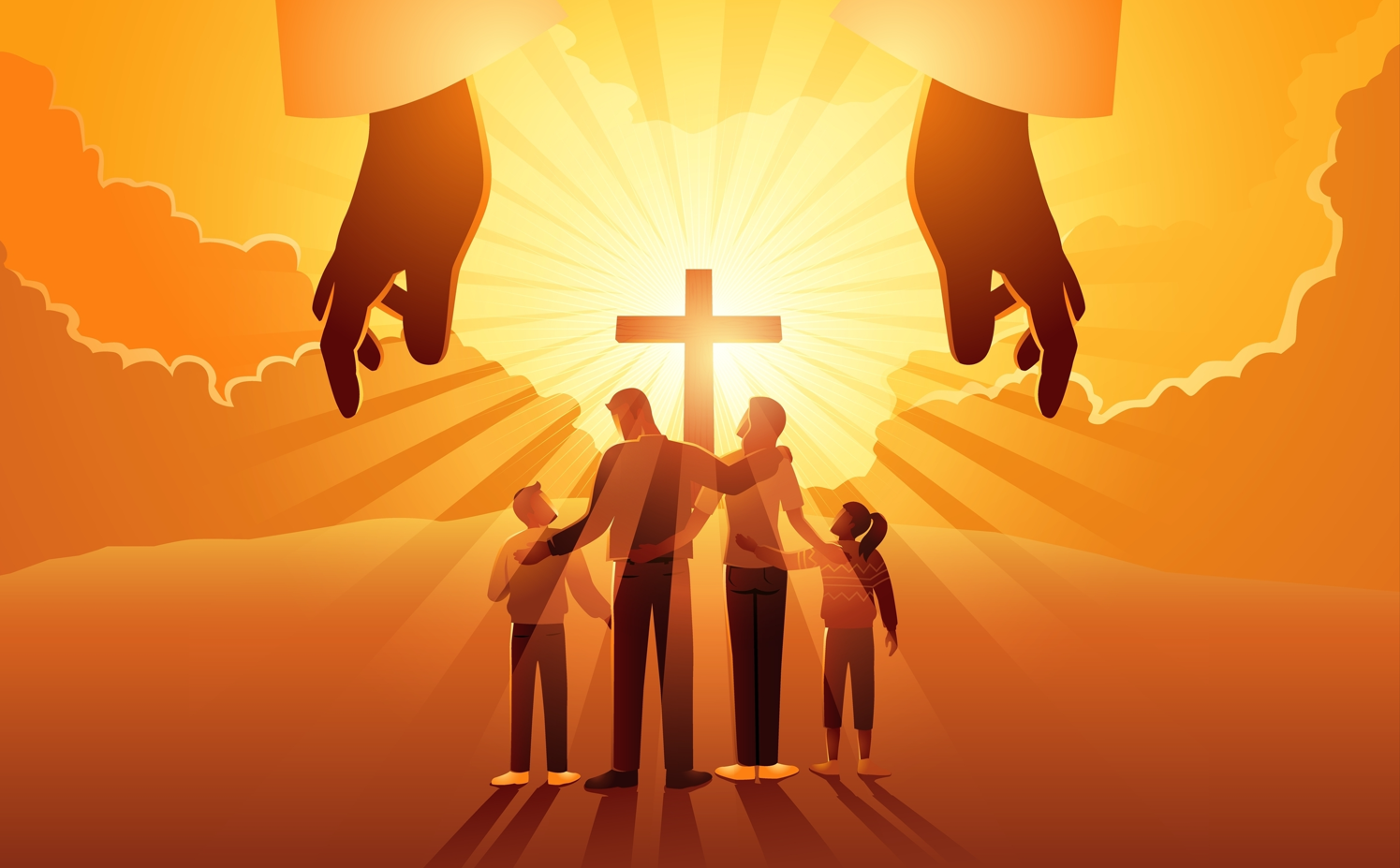“Be a neighbor because we have a savior”

The Good Samaritan is one of the most beloved, most used, and, at times, misused passages of Scripture. Virtually everyone knows the story. Many rightly see the Good Samaritan as a metaphor for Jesus as our Savior. (Note that the context of the story is a question about eternal life; see Luke 10:25). He, like the good Samaritan, pays the price to save us and offers us life as a gift by grace, which then urges us to love others mercifully as He first loved us. Others see it in a more limited way. They see it as the distilled moral teachings of an ancient Rabbi whose only message was, “Show mercy to people.” That’s it. If that is all there is to Jesus, then we do not need to hear His other words which assert, “You therefore must be perfect, as your heavenly Father is perfect” (Matthew 5:48). We can omit his call to “repent for the Kingdom of God is at hand” (Matthew 4:17). Instead, just be tolerant and merciful, or at least try the best you can. I’ve even had people write to me and say that this is Jesus’ view of politics too. Whew! Who knew the passage could be used and misused so boldly!
Here’s a few things to think about today. When people start saying, “This is what the passage means to me,” it’s good to remind ourselves that there are other passages in Scripture that help us be faithful to the meaning of the one before us. Therefore, it’s good to remember that on the cross Jesus declares, “It is finished” (John 19:30). Then and there He defines what His main message is, namely paying the price for humanity’s sin. Earlier in His ministry, He tells Martha that Mary has chosen the best thing of all, namely, to sit still and listen to His life-giving Word (Luke 10:38-42). The point is that Jesus’ teaching can’t be reduced to mere moralisms for this life! Yes, the attitude of “be merciful” is to be unleashed on the world. But it comes from those who have first been “mercied” by Jesus, who trust in Him by grace through faith.
Jesus does motivate us to get involved in people’s lives. But this is no political platform for policy. Jesus isn’t telling “Caesar” or other earthly governments to “go and do likewise.” (There are other passages in the Bible which help us determine what earthly authorities should and should not be doing; for example, see Romans 13:1-7). The coercive power of the state is not the instrument of Jesus’ mercy; that’s work for His Church, His people. This is a call for you and me to open our eyes to others and to “go and do likewise.” It’s a call to really get involved in people’s lives. There will likely be costs for sharing mercy; pay those personally, joyfully. There will be “comfort zones” to overcome as well. Don’t let any of the people whom the Lord brings into your lives be outside of your commitment to “speak the truth in love” for them (Ephesians 4:15). Always remember how Jesus drew near to be a neighbor TO YOU; then be that kind of neighbor IN HIM for those whom He brings into your lives. Be a blessing to others in your life. As Jesus himself put it, “Be merciful, even as your Father is merciful” (Luke 6:36).
PRAYER: Dear Lord Jesus, deepen my understanding of the merciful neighbor You are for me, so that I might be that kind of neighbor to those whom You bring into my life. AMEN.
Luther grounded his understanding of civil government and its duties toward God in creation, teaching that rulers are a type of father. In the Large Catechism he wrote, “Thus we have two kinds of fathers presented in this commandment, fathers in blood and fathers in office, or those to whom belongs the care of the family, and those to whom belongs the care of the country. Besides these there are yet spiritual fathers.” Luther recognized the universal responsibility of all mankind to acknowledge and serve God in accordance with one’s particular station. All earthly rulers, whether of Israelite or Gentile nations, were expected to follow God’s Word. If they did not serve the Lord, like emperors Nero and Domitian, they would be held guilty by Him. Luther maintained a consistently positive estimation of Constantine and other Christian rulers throughout his writings — especially their aid in resisting the grasping tyranny of the papacy. He held up David and the other faithful kings of Israel as examples of the universal duty of rulers to acknowledge and serve God.
Today’s passage is Matthew 4:8-11 where the Bible tells us one of the ways in which the devil tempted Jesus.
Again, the devil took him to a very high mountain and showed him all the kingdoms of the world and their splendor. 9 “All this I will give you,” he said, “if you will bow down and worship me.”
10 Jesus said to him, “Away from me, Satan! For it is written: ‘Worship the Lord your God, and serve him only.11 Then the devil left him, and angels came and attended him.
The pancakes, pączki, and pierogis still linger on my tastebuds as I walk the aisle toward the altar for the imposition of ashes. The richness of those foods recalls times of plenty—times of excess—times when I chased the wants of life instead of resting in the sufficiency of the needs God provides.
I’ve also sometimes struggled, I’ll confess, to reconcile my own civic duty to honor our nation’s flag with my Christian call to “fear, love and trust in God above all things.” The melody blaring from a speaker mounted high upon a tower reminds me eerily of church bells “chiming and calling” Christians to Sunday worship (LSB 645), or of a muezzin summoning Muslims to daily prayer. Although colors isn’t meant to be a spiritual act of devotion, the striking resemblance it bears to such ancient religious practices is hard to ignore.
The Bulletin Insert is designed to be printed and cut in half to fit conveniently inside a Sunday worship bulletin. Each month an insert will offer insight, encouragement, and information from the LCRL on the topics of Religious Liberty, Life, Marriage, or Education.
The dates identifying the LCRL bulletin blurbs are only suggestions. Please feel free to use any and all of the bulletin blurbs as your ministry needs allow.
Today’s passage is Matthew 17:1-8, where the Bible tells us of this momentous event:
And after six days Jesus took with him Peter and James, and John his brother, and led them up a high mountain by themselves. 2 And he was transfigured before them, and his face shone like the sun, and his clothes became white as light. 3 And behold, there appeared to them Moses and Elijah, talking with him. 4 And Peter said to Jesus, “Lord, it is good that we are here. If you wish, I will make three tents here, one for you and one for Moses and one for Elijah.” 5 He was still speaking when, behold, a bright cloud overshadowed them, and a voice from the cloud said, “This is my beloved Son, with whom I am well pleased; listen to him.” 6 When the disciples heard this, they fell on their faces and were terrified. 7 But Jesus came and touched them, saying, “Rise, and have no fear.” 8 And when they lifted up their eyes, they saw no one but Jesus only.
Social media today functions much like the volatile crowds Gustave Le Bon described over a century ago when he observed, “Crowds are only capable of thinking in images, and are only to be impressed by images. It is by images alone that great leaders can be followed.” In the digital world, people aren’t working through truth with patience and reason; they’re reacting to symbols, slogans, memes, and bite-sized videos that bypass the mind and stir the gut and emotions.
Today’s verses are Deuteronomy 30:15-18a, where Moses says,
See, I have set before you today life and good, death and evil. If you obey the commandments of the Lord your God that I command you today, by loving the Lord your God, by walking in his ways, and by keeping his commandments and his statutes and his rules, then you shall live and multiply, and the Lord your God will bless you in the land that you are entering to take possession of it. But if your heart turns away, and you will not hear, but are drawn away to worship other gods and serve them, I declare to you today, that you shall surely perish.
"We will replace the frigidity of rugged individualism with the warmth of collectivism." Thus far Mamdani, whose words are chilling to the bone. Now we might counter that rugged individualism is a whole lot better than collectivism, and we'd be right. Collectivism means you lose your identity, you become a number, a statistic, a victim, and a ward of the state that cares not a whit about you.
Collectivism has the warmth of a Siberian gulag, a dark North Korean night. The fact that Mamdani can get away with such rhetoric, even after Communism has taken the lives of tens of millions of people, is frustrating.
Prayer Partner Thursday provides a month-long prayer emphasis in one of the four Lutheran Center for Religious Liberty areas of emphasis: Religious Liberty, Sanctity of Life, Educational Freedom, and Marriage as an Institution (family).
Today’s passage is from 1 Corinthians 1:26-31, where the Bible says….
But God chose the foolish things of the world to shame the wise; God chose the weak things of the world to shame the strong; God chose the lowly things of this world and the despised things of the world to nullify the things that are, so that no one can boast before him. It is because of him that you are in Jesus Christ, who has become for us wisdom from God that is our righteousness, holiness, and redemption, therefore as it is written; "let him who boasts, boast in the Lord!"
We live in an age obsessed with image management. Entire industries exist to shape perception—public relations firms, branding consultants, and social media strategists whose job is to make people appear impressive.
What's a blessing, and what's a curse? When it comes to earthly matters, it's often not clear. Success can be a killer, especially when it comes with fame. Michael Jackson and Whitney Houston, Elvis Presley, for sure, and a whole host of late 60s heroes who died at the age of 27. The Beatles benefited from being four, so were less susceptible to lackeys.
Today’s verse is Matthew 4:17, where the Bible says,
From that time on Jesus began to preach, “Repent, for the kingdom of heaven has come near.”
There is no trouble too large for the government to solve, no concern too small for it to care about. Such words might be spoken of God, for whom nothing is impossible. Have you trials and temptations? Is there trouble anywhere? We should never be discouraged. What a friend we have in Mamdani?
The Bulletin Insert is designed to be printed and cut in half to fit conveniently inside a Sunday worship bulletin. Each month an insert will offer insight, encouragement, and information from the LCRL on the topics of Religious Liberty, Life, Marriage, or Education.
The dates identifying the LCRL bulletin blurbs are only suggestions. Please feel free to use any and all of the bulletin blurbs as your ministry needs allow.
Today’s verse is John 1:29 which tells us of this encounter between John the Baptist and Jesus:
“The next day John saw Jesus coming toward him and said, ‘Look, the Lamb of God, who takes away the sin of the world!’”
We are hearing more and more that famous quotation from Martin Luther: “I’d rather be ruled by a wise Turk than by a foolish Christian.” The problem is, no one has been able to find that famous quotation in any of the voluminous works of Luther. It appears that the quotation is apocryphal. I suspect it may have originated as an attempt to explain the implications of Luther’s doctrine of the Two Kingdoms, as in, “Luther would have rather been ruled by a wise Turk. . .” which then was recalled as “Luther said he would rather have been. . . .” Read more from Dr. Gene Edward Veith here.
Today’s passage is Matthew 3:13-17, where the Bible says,
Then Jesus came from Galilee to the Jordan to be baptized by John. 14 But John tried to deter him, saying, “I need to be baptized by you, and do you come to me?” 15 Jesus replied, “Let it be so now; it is proper for us to do this to fulfill all righteousness.” Then John consented. 16 As soon as Jesus was baptized, he went up out of the water. At that moment heaven was opened, and he saw the Spirit of God descending like a dove and alighting on him. 17 And a voice from heaven said, “This is my Son, whom I love; with him I am well pleased.”
As 2025 ends, as faithful Lutherans, there is much to be thankful for as we have seen many positive developments for faith and freedom.
Pregnancy resource centers are booming while Planned Parenthood clinics are closing their doors. It looks like we are beginning to see a spiritual revival among young adults as they reject the emptiness of the culture they see around them. And several states have passed common-sense age verification laws, upheld by the U.S. Supreme Court, to protect innocent children from accessing graphic pornography online.
So, what is ahead for 2026? What policy advancements can we make to continue this positive momentum back towards faith and freedom?
Today’s passage is Luke 2:41-50, where the Bible says,
Every year Jesus’ parents went to Jerusalem for the Festival of the Passover. 42 When he was twelve years old, they went up to the festival, according to the custom. 43 After the festival was over, while his parents were returning home, the boy Jesus stayed behind in Jerusalem, but they were unaware of it. 44 Thinking he was in their company, they traveled on for a day. Then they began looking for him among their relatives and friends. 45 When they did not find him, they went back to Jerusalem to look for him. 46 After three days they found him in the temple courts, sitting among the teachers, listening to them and asking them questions…. 47 Everyone who heard him was amazed at his understanding and his answers. 48 When his parents saw him, they were astonished. His mother said to him, “Son, why have you treated us like this? Your father and I have been anxiously searching for you.” 49 “Why were you searching for me?” he asked. “Didn’t you know I had to be in my Father’s house?” 50 But they did not understand what he was saying to them.
Today is a dark day in the history of Illinois. Governor Pritzker—of whom every LCMS pastor in Illinois prays for each week and will continue to do so—signed into law . . . the “End-of-Life Options for Terminally Ill Patients Act,” granting terminally ill patients who have received a prognosis of six-months to live or less the ability to receive a pill in order to end their own lives.
Prayer Partner Thursday provides a month-long prayer emphasis in one of the four Lutheran Center for Religious Liberty areas of emphasis: Religious Liberty, Sanctity of Life, Educational Freedom, and Marriage as an Institution (family).
Today’s verses are Galatians 4:4-7, where the Bible says,
4 But when the fullness of the time came, God sent His Son, born of a woman, born under the Law, 5 so that He might redeem those who were under the Law, that we might receive the adoption as sons and daughters. 6 Because you are sons, God has sent the Spirit of His Son into our hearts, crying out, “Abba! Father!” 7 Therefore you are no longer a slave, but a son; and if a son, then an heir through God.
A blessed Christmas to all of you “for today (many years ago) in the town of David a Savior has been born to you; he is Christ, the Lord. This will be a sign to you: You will find a baby wrapped in cloths and lying in a manger” (Luke 2:11-12). The life, death and resurrection of Jesus came as a blessing to the world even though the world didn’t deserve it and, even worse, was unreceptive to receiving Him as the gift that He was for them (see John 1:10-13).
Today’s verses are Isaiah 35:3-4, where the Bible declares:
Strengthen the weak hands, and make firm the feeble knees. 4 Say to those who have an anxious heart, “Be strong; fear not! Behold, your God will come with vengeance, with the recompense of God. He will come and save you.”
We are slaves of Christ, but earthly slavery is not a good thing. Slavery is an institution of the fallen world. I am led to understand that even today there are fifty million people living as the property of others. I'm not sure what would happen if we added to that number those enslaved in various systems like North Korea. But bonds and fetters are not to be celebrated or commended, and if someone might say that it is a good thing, I have never seen anyone volunteer to be on slavery's receiving end. This is not to be a Pollyanna or to hide our heads in the sand. Throughout history, when one nation has conquered another, slavery has resulted. There will always be wars and rumors of wars, and life is messy. And yet slavery is not a good thing. And we can say so without losing sight of the fact that we as Christians are slaves of God, even as we are His children.
The dates identifying the LCRL bulletin blurbs are only suggestions. Please feel free to use any and all of the bulletin blurbs as your ministry needs allow.
The Bulletin Insert is designed to be printed and cut in half to fit conveniently inside a Sunday worship bulletin. Each month an insert will offer insight, encouragement, and information from the LCRL on the topics of Religious Liberty, Life, Marriage, or Education.

























